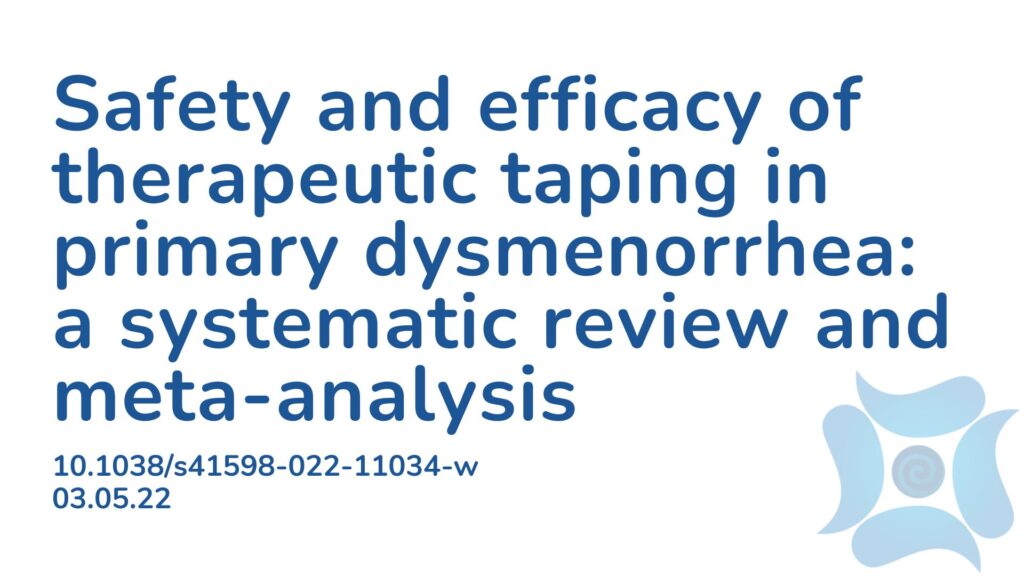Summary: Primary dysmenorrhea (PD) is pain or cramping shortly before or during menstruation, often accompanied by other symptoms such as nausea, back pain, headaches, diarrhea, and fatigue.
PD is categorised as dysmenorrhea that is present without any diagnosis or obvious pathological cause, whereas secondary dysmenorrhea is pain during the menstrual period caused as a result of a pelvic condition such as endometriosis. PD is common amongst menstruating women, and often disregarded by physicians as a normal part of menstruation that women must simply tolerate.
There are many complementary and alternative therapies that have proven useful for reducing pain. Literature shows the use of common alternative therapies including herbal medicine, dietary changes and supplementation have been effective at reducing pain and medication use. Hypnosis and psychotherapy have also shown to be effective.
This systematic review and meta-analysis was conducted in order to evaluate the efficacy and safety of therapeutic taping (TP) on clinical symptoms of PD, using pain as the primary outcome measure. A total of 685 participants were involved in the study. TPs work by generating cutaneous stimuli, reducing swelling, improving circulation and regulating muscle tone. In previous literature it has been found to be effective in reducing pain by supporting weak muscles, and increasing lymphatic and blood flow to the affected area. This meta-analysis concluded there are short-term improvements of pain when using TPs and elastic therapeutic taping showed improvements in anxiety associated with PD. This meta-analysis also concluded there is an insufficient amount of evidence on the long-term effects of TP and further research in this area should be conducted.
Abstract: Primary dysmenorrhea (PD) is a common gynaecological condition among adolescent and adult women. Several pharmacological and alternative therapies (e.g. therapeutic taping) have been used to treat PD, with varying effect. This systematic review and meta-analysis was performed to evaluate the safety and efficacy of therapeutic taping on clinical symptoms of PD, considering pain as the primary outcome. MEDLINE, Cochrane Library, Embase, PEDro, CINAHL and gray literature sources were searched from inception to February 2022 for randomised controlled trials (RCTs) that assessed the effect of therapeutic taping for PD. The language was restricted to English. A total of ten studies were included in the systematic review, involving 685 participants. Eight studies were included in quantitative analysis. The quality of the studies ranged from 4 to 7 with a median of 5 as assessed by PEDro scale. Meta-analyses indicated short-term improvements of pain compared to sham and no interventions. Elastic therapeutic taping (ETT) indicated short term improvements in anxiety associated with PD. Moderate to high quality of evidence suggested ETT is an effective intervention in improving pain, anxiety, and quality of life of women with PD. A scarcity of evidence on the long-term effects of therapeutic taping in PD is observed
Article Publication Date: 03.05.22
DOI: 10.1038/s41598-022-11034-w



